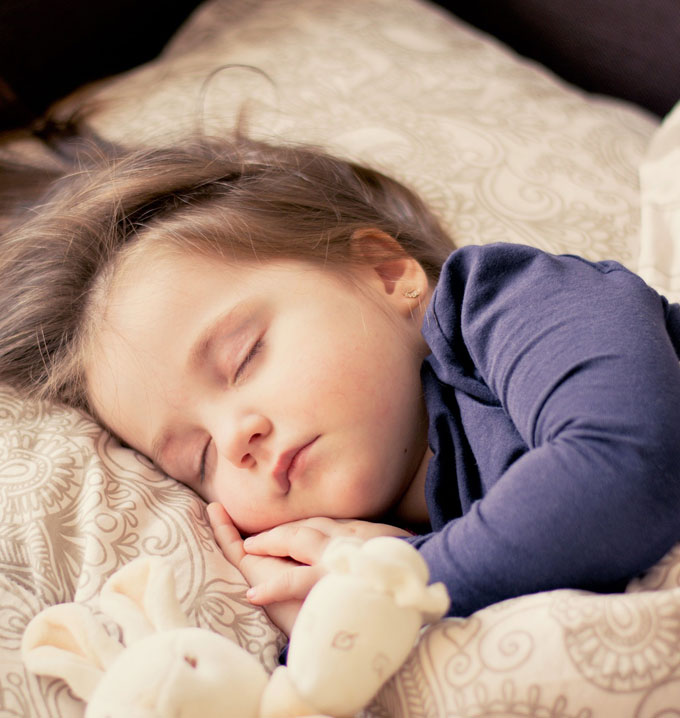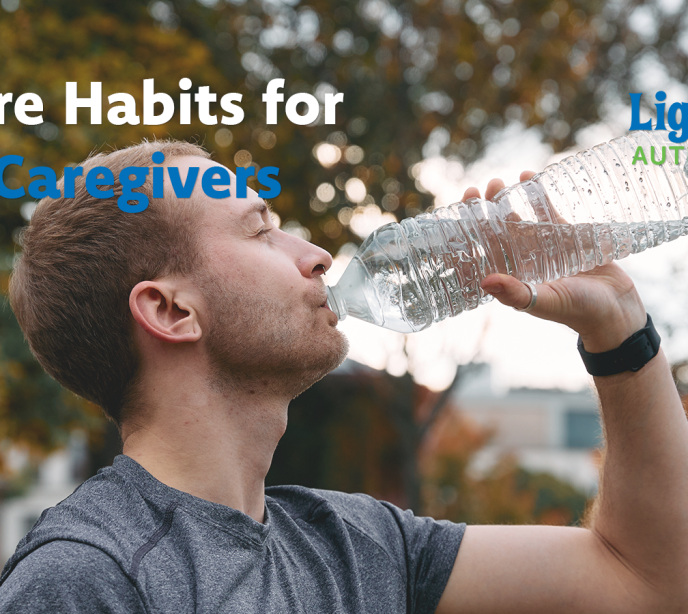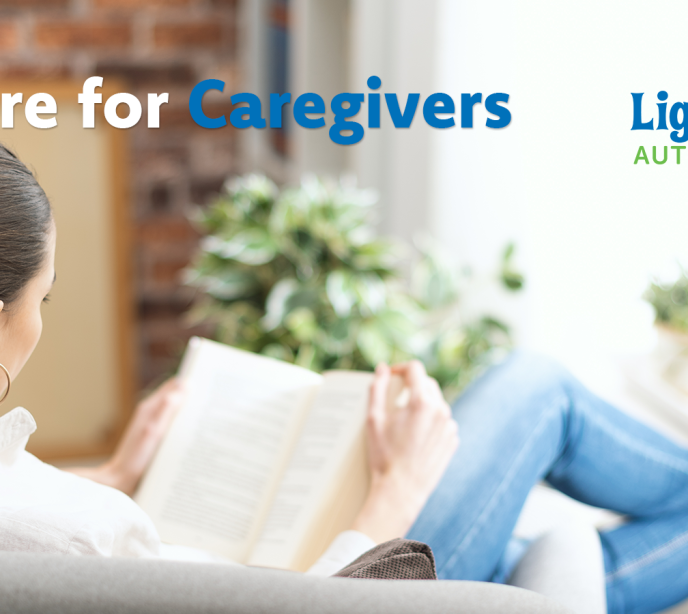Sleep Tips For Autistic Children – Lighthouse Autism Center
Many autistic children have sleep problems. This can impact their daily lives, moods, and behavior. In this blog, we explore why autism can impact sleep and provide tips on how to help your child get a better night’s rest.

Autism and Difficulty Sleeping: Sleep Tips For Autistic Children
Many children struggle with sleep issues that prevent them from getting a good night’s rest. We explore how autism can impact a child’s sleep and provide tips to help you address them.
Autism Spectrum Disorder Sleep Problems
Many autistic children struggle with sleep issues, which, in turn, negatively affect other aspects of their lives. We explore how autism may affect your child’s sleep, how common autism and sleep issues are, the consequences for the child, and what helps with these sleeping issues.
How does autism affect children’s sleep?
There are several common sleep issues that autistic children may have to deal with. These include:
- Struggling to fall asleep
- Not going to bed at a consistent time
- Not getting the right quality of sleep
- Waking up frequently during the night
- Waking up too early
How common are sleep issues for autistic children?
A study from 2018 titled “The Relationship between Sleep Problems, Neurobiological Alterations, Core Symptoms of Autism Spectrum Disorder, and Psychiatric Comorbidities” has found that anywhere between 50% and 80% of autistic children have sleep difficulties. The link between autism and trouble sleeping is incredibly high, and, as you may no doubt guess, it can compound the difficulties that autistic children already have to deal with.
What are the consequences of sleep loss for children with autism?
We’ve already touched on how poor sleep can negatively impact your loved one’s life. But what are the consequences of sleep loss or poor sleep in autistic children?
If your autistic child is not getting enough rest, they may end up experiencing increased levels of:
- Aggression
- Depression
- Irritability
- Hyperactivity
- Poor learning and cognitive performance
- Increased behavioral problems
They may also struggle with other behavioral issues and lower learning and cognitive performance.
And yes, many of these problems are not unique to autistic children. These issues can impact the lives of autistic adults, as well as allistic children and adults, but there’s no doubt that these challenges make things worse for many children on the autism spectrum.
Now that we understand how lack of autism and sleep problems can be connected and affect each other, here’s some advice on how you can help your children get the rest they need at night.
Tips for helping children rest well
Your autistic child needs to get the right amount of rest to tackle life at their best. Here are nine tips to help them get the right amount and the right quality of sleep.
1. Set an appropriate and regular bedtime
Setting and sticking to an appropriate bedtime isn’t only good advice for a parent with autistic children but for everyone. Taking this advice and implementing it will ensure your child’s natural circadian rhythm (the body’s processes that operate on a roughly 24-hour cycle) isn’t disrupted, which makes it easier to get to sleep at night. It also has numerous other health benefits and will ensure the mind operates at its best.
2. Have a bedtime routine in place
Having a set of activities that you, your child, or both of you partake in can help your autistic child fall asleep. You’ll need to assess and ensure that you implement activities that aren’t stimulating and will help calm your child. Reading them a soothing bedtime story or singing them a relaxing lullaby are some of the possible activities that you can use to help your child drift off to sleep.
A visual or written list of things that your child needs to do may also be beneficial and can help them stick to their routine.
3. Set up the right kind of sleep environment
Your child must have a space that’s dedicated to sleep. This doesn’t necessarily mean you must forbid all activities or toys in the bedroom. Rather, ensure these activities are kept to a certain part of the room and don’t take place in bed. If certain things help your child sleep, such as a stuffed animal, these objects can be kept in or near the child’s bed.
It’s also important the bed itself is set up in such a way that it encourages your child to sleep. Remember, autistic children can be extremely sensitive to certain sounds and textures. Ensure any bedding you use doesn’t cause your child any irritation or discomfort, either due to how it feels against them or the sound it makes when rubbing up against a person or other parts of the bed.
The rest of the environment should also be conducive to sleep. This means it should be quiet, moderately cool, and dark or dimly lit.
4. Ensure they don’t eat or drink too late at night
Eating or drinking certain things late is not a good idea because it disrupts the body’s circadian rhythm. Think of it this way: the body is effectively getting ready to “shut down” for the night when, all of a sudden, food arrives. This tells the body that it isn’t time for sleep but time to process the food. Only once the body is done processing the food can it return to a state where it’s ready to sleep.
Not only is it a bad idea to eat too close to bedtime, but certain foods and drinks can also worsen the situation. Things like caffeine-filled sodas or sugary sweets can be incredibly disruptive and should be avoided at all costs.
If your child is thirsty, water is fine; if they are hungry, you can give them a small portion of certain healthy foods, such as nuts or fruits that aren’t too sweet. Ensure your autistic child eats at least three hours before bedtime.
5. Get a good amount of sunshine during the day, particularly in the morning
Sunlight is another key element that affects the body’s circadian rhythm. It’s important to start the day with a good dose of sunlight so that your body knows it’s the morning and adjusts your circadian rhythm accordingly. This realignment of the circadian rhythm will also help the body know when it’s time to go to sleep, making it easier for your autistic child to fall asleep at the same time every day.
6. Manage nap times to ensure your child is tired enough to go to sleep at night
If your autistic child naps too much during the day, they may struggle to go to sleep at the same time every night. Keep naps to 20 minutes or shorter to ensure your child can keep to their regular sleep schedule.
7. Physical activity could be key to helping your child get to bed at night
The study “Potential of Physical Activity-Based Intervention on Sleep in Children With and Without Autism Spectrum Disorder” has found that autistic children are likely to be less physically active than their allistic peers and that by ensuring children took part in exercise, parents could possibly increase the quality of their child’s sleep. While more research needs to be done to confirm the findings of this study, it is something you could try with your child to test and see if exercise helps your autistic child sleep better at night.
8. Use sleep aids for autistic children
If you’re wondering what is the best sleep aid for an autistic child, here are some of the devices that you may want to investigate further.
- A weighted blanket: Studies show that weighted blankets can offer numerous benefits for autistic children, including helping them fall and stay asleep.
- A white noise machine: A white noise machine can help your autistic child get a better night’s sleep by helping block any noises that might otherwise disturb them.
- Blackout curtains: There are many sources of light, including unnatural ones, that can disrupt your autistic child’s sleep. Blackout curtains can help you maintain a consistent environment so that they can sleep well. Eye masks could also work if your child does not experience sensory discomfort while wearing them.
9. Consider speaking to a specialist about medication
While many non-pharmaceutical interventions can help, you may find yourself still struggling to help your autistic child get to sleep. In these scenarios, speaking with an expert about pharmaceutical options, whether melatonin supplementation or another prescribed medication, is important.
10. Keep a sleep diary
A sleep diary is useful for tracking your child’s sleeping patterns. You can establish any unusual sleep patterns and identify the factors influencing sleep. This allows you to track when you have put certain strategies in place and whether they are effective. A sleep diary is also useful for clinicians, doctors, and social workers to assess your child’s sleep quality better.
Unlock your child’s potential with the Midwest’s leading autism therapy center
At Lighthouse Autism Center, we offer a unique approach to autism therapy called Lighthouse Fusion®. This unique approach to autism treatment combines the best aspects of ABA and speech therapy to help your child perform at their best. Learn more about Lighthouse Fusion® ABA therapy and use our autism resources to discover how it can help your child improve their outcomes.
Together, we can unlock your child’s potential
Related News

01/15/2026
10 Simple Self-Care Habits for Autism Caregivers
Caring for a child with autism is rewarding, but can also be demanding in ways that aren’t always visible. Between daily routines, therapy schedules, advocacy, and emotional labor, many caregivers find themselves running on empty, even as they continue to show up for their child every day. Earlier this year, we explored this reality in our blog post, The Power of Pause: Why Caregiver Self-Care […]

01/05/2026
The Power of Pause: Why Caregiver Self-Care Matters
As a new year begins, many families naturally reflect on what they hope the months ahead will bring—more peace, more balance, more support. At Lighthouse Autism Center, we’ll be taking a deeper look at the importance of self-care throughout the month of January, offering resources and encouragement to help caregivers start the year feeling supported and grounded. But […]

11/18/2025
Tips for Picky Eaters and Introducing New Foods
Autistic children are often labeled as picky eaters, but the truth is that they face a unique set of challenges that can make mealtimes extremely stressful. Discover helpful tips on introducing new foods into your child’s diet to make mealtimes more nutritional and enjoyable for everyone at the table. Autism and Food: Tips for Introducing […]


